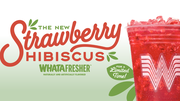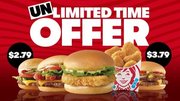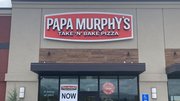Article
Stacking up to McDonald's
If the burger giant won the recession, how did the other QSRs fare?

October 18, 2009
In August, Slate's Daniel Gross wrote that McDonald's won the recession. But the burger leader certainly didn't cross the finish line unscathed. U.S. same-store sales, though still positive, are down. And foreign currency exchange rates have impacted earnings.
McDonald's attracted consumers with discounts and giveaways of its new premium coffee and Angus burgers. It also grew by 600 stores while other chains scaled back. Still, Gross questioned whether consumers would abandon the brand once they had money to burn again.
Analyst Steve West of Stifel Nicolaus assured investors in a recent note, however, that QSR — as well as the fast casual segment — will not lose out to consumers rushing back to casual dining but will recover first. The segments have won over consumers, not only on value but with their improved food quality and convenience.
"At some point, the consumer will stabilize and start to come back," West said in an interview. "I believe that fast food will be best positioned to retake the market share first before casual dining."
If West is right, McDonald's will be seeing double-digit comps long before casual dining returns to pre-recession levels — and other QSRs will be right on their heels.
Here's a look at how the segment leaders fared in the marathon to outwit the macro-economy.
Bruised but victorious: McDonald's Corp. (NYSE: MCD) stayed focused on its Plan to Win, proving CEO Jim Skinner right when he said the company was recession resistant. At the beginning of the recession in December 2007, McDonald's traded at a high of $63.39 that month. Like many stocks, MCD hit its low last October, falling to $45.49. By August 2008, trading hit a high of $67 but trended below that for much of the following year, ending at $54.89 on Sept. 15, when economists declared the recession over. MCD closed at $58.78 on Friday.
Global comps at the end of 2007 were up 6.7 percent for the fourth quarter. Last month, the company reported comps for August were up only 2.2 percent.
West said McDonald's biggest weakness during the recession was the strength of the U.S. dollar compared to the Euro. Foreign exchange rates significantly impacted the company's earnings since more than 55 percent of its operating profits come from international outlets. The company's year-over-year earnings per share were up only 5 percent due to the exchange rates, an impact of about 10 percentage points.
McDonald's USA benefitted from its new product rollouts, especially the McCafé espresso-based coffee line. With that launch, the QSR became a direct competitor with fast casual coffee giant Starbucks — and stole market share from them, West said.
"McDonald's is the last restaurant company out there in the quick-service space that's reporting positive same-store sales," he said. "Yes, they're barely positive, but they're still positive."
Still fighting: Yum! Brands (NYSE: YUM), parent company of Taco Bell, KFC and Pizza Hut, experienced a 46 percent difference between its recessionary high of $41.73 in April 2008 and low of $21.50 in November 2008. YUM had a high of $39.97 in December 2007 and typically sustained close to that level until trending steadily downward after that April, hitting a low of $21.50 in November 2008. YUM has climbed steadily since March and closed at $33.42 on Sept. 15. By close on Friday, YUM traded at $35.25.
Yum! 2007 with global comps up 4 percent for the fourth quarter. Comps for the most recent reported quarter were flat.
While McDonald's was hurt by foreign currency exchange rates in Europe, Yum!'s international locations are primarily in China, where exchange rates have not been as impacted, West said. Growth in China has boosted the company's profits, but U.S. same-store sales did not fare as well.
Pizza Hut was a drag on the company's earnings, experiencing comp declines of 8 and 13 percent or more over the last two quarters, respectively. Taco Bell, the company's value leader brand, saw a 2 percent same-store sales decline in the recent quarter, which West said is on par with QSRs overall. KFC, which received a huge boost from the introduction of Kentucky Grilled Chicken in the prior quarter, also experienced a 2 percent comps decline.
West is confident Taco Bell will recover more quickly than KFC, which has lost some of the glow from the grilled chicken launch. "The buzz is gone, Oprah's not backing it every day," he said. "You get rid of all that free advertising, and sales went away and went negative."
KFC recently brought back the $3.99 two-piece grilled chicken meal to boost sales. West said the biggest benefit of the new product line is that so far it has created a mix shift of 30 percent. Since the grilled product has a higher profit margin, the company's operating margin should also benefit. If that product mix declines in coming months, KFC can still benefit because the product helps eliminate the veto vote, especially from moms wanting healthier items.
Trailing behind: Burger King (NYSE: BKC) is limping out of the recession looking like an also ran, launching a $1 double cheeseburger despite franchisee protest — and McDonald's moving its similar sandwich off the dollar menu last year. The company also focused on the Amsterdam grand re-opening of the chain's new upscale prototype, a reimaging that lags McDonald's and other QSRs by several years.
BKC took a beating as the company realized its focus on premium products was ill timed and as critics slammed the chain for a string of controversial ads in the United States and overseas. In December 2007, BKC traded at a high of $29.19. The stock was somewhat volatile during the first eight months of 2008 before hitting a low of $16.56 that October. BKC took another beating this past May as investors learned of the chain's declining comps, dropping to $15.85. BKC hit a low of $15.61 in July and closed at $17.44 on Sept. 15. On Friday, shares traded at $17.99 at close.
West said in an interview that Burger King suffered from several problems, the most significant of which is that the majority of its locations are in the United States, Mexico and Germany, three countries affected most by the recession. The company will rebound but "it's just going to take them a little longer."
Comps in December 2007 were up 4.5 percent systemwide for the company's second quarter. Burger King will report first quarter results next week, but in the last quarter saw global comps down 2.4 percent.
Moving aggressively forward with its reimaging plan is a smart move for the brand, he said. In that respect, the company is far behind McDonald's, which has focused on more upscale interiors over the past six years or so. "The No. 1 driver of McDonald's success over the last six to seven years has been those remodels," he said. "Burger King recognizes this. That's why they're going down that road."
Burger King's new batch broilers, scheduled to be in all U.S. stores by January, should help the company on two fronts: using less natural gas and enabling the preparation of any size protein. Additionally, the broilers will be tied to a new point-of-sale system that will allow the stores to forecast food usage and cut waste.
Last place: Wendy's/Arby's Group Inc. (NYSE:WEN) started the recession as two separate companies. WEN traded at a high of $28.62in December 2007 and closed at $19.21 on Sept. 29, 2008, the day before the merger with Triarc Cos. TRY traded at a high of $9.68 in December 2007 and closed at $4.10 on Sept. 29, 2008. TRY.B traded at a high of $9.35 in December 2007 and closed at $$4.20 on Sept. 29, 2008.
| ||||||||||||||||||
Since the merger, WEN hit a low of $2.63 in October 2008 and recovered somewhat by January when it traded at $5.50. On Sept. 15, WEN closed at $5.06. On Friday, the stock closed at $4.62.
Wendy's and Arby's were struggling with comps at the beginning of the recession, with Wendy's company-owned stores seeing only a 0.9 percent comps increase and Arby's company-owned stores down 1.6 percent. For the most recent quarter, Wendy's reported comps were down 0.4 percent systemwide, and Arby's down 6.9 percent.
Charles Pinson-Rose, analyst with Standard & Poor's, gave the company a negative corporate credit rating in his most recent notes to investors, dated June 24. In his notes, he cited intense value competition pressuring Arby's as well as the company's highly leveraged capital structure and limited store and sales growth opportunities as weaknesses. He expects the company's recent completion of its senior unsecured note offering to result in a deterioration of its credit metrics.
Last week in an interview, Pinson-Rose said Arby's continues to be challenged in the sandwich segment, especially by Subway's successful $5 footlong promotion. Arby's $5.01 sandwich meal deals are likely to help somewhat, but he still anticipated weakness through the rest of the year. "There's no sort of quick turnaround on the horizon," he said.
Sister chain Wendy's also has struggled to maintain sales during the difficult environment and has pushed value promotions, such as its 3-conomics specials, and new product rollouts, including boneless chicken wings. The company's latest campaign — and the first for its new creative Kaplan Thaler Group — "You know when it's real" is an attempt to woo an older demographic where there's less competition than in targeting the traditional 18- to 34-year-old male group. The chain is focusing on higher quality products to attract that older crowd, Pinson-Rose said.
"So they're going back to their roots," he said. "Whether or not it's successful, it's consistent with their strategy."
ChickenTrends / StatisticsBurger/Steak/BBQFinance / InvestmentItalian/PizzaSandwichMexicanOperations
 ChatGPT
ChatGPT Grok
Grok Perplexity
Perplexity Claude
Claude









